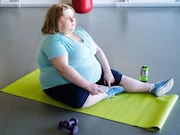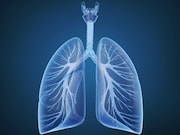Home 2018
Yearly Archives: 2018
Lifestyle Interventions Cut Excess Gestational Weight Gain
Findings among diverse population of overweight, obese women
Low Vitamin D Levels Tied to Interstitial Lung Disease
Findings include both high-attenuation areas, interstitial lung abnormalities on scans
Promising New Way to Identify Breast Cancer Tumors
Technology can be used to identify the molecular markers of breast cancer tumors
Repeat CT Common in Peds Traumatic Epidural Hematoma
Reimaging only those with concerning neurologic findings, mass effect on initial CT could cut use
Study Provides Estimates of U.S. Prevalence of Type 1, 2 Diabetes
Prevalence of type 1 diabetes 0.5 percent, type 2 diabetes 8.5 percent among U.S. adults
Black Individuals at Highest Risk of Legal Intervention Injury
Increase in rates of injuries from 2005 to 2009, followed by a drop to 2015, returning to ~2005 levels
Research Links Doctor Burnout to Patient Safety Incidents
Physician burnout linked to increased risk of patient safety incidents, reduced patient satisfaction
Cannabinoid Trials Needed for Peds Neurologic Disorders
Canadian researchers urge rigorous clinical trials in pediatric patients
Educational Disabilities More Likely With Neonatal Abstinence
Children with neonatal abstinence syndrome more likely to be evaluated, meet criteria for disability
>60 Percent of Adults Report Adverse Childhood Experiences
Higher ACE exposures for black, Hispanic, multiracial individuals, those with below high school education














